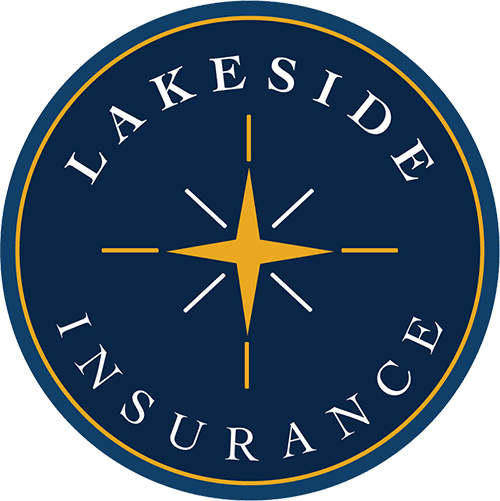
Whether you have a small business or a venture capital start-up, you need to identify what risks your company faces and what insurance coverage you need to protect your business and personal financial interests.
While most businesses benefit from an insurance adviser, there are some points you should understand to make well-informed decisions. This is especially important when it comes to protecting your leadership and enterprise from a catastrophic loss of assets.
The most common insurance coverages businesses obtain include:
- General liability coverage to protect against bodily injury or property damage caused by your company’s products or services
- Workers’ compensation insurance to provide wage and medical benefits for employees injured on the job
- Property insurance to cover damage to your property resulting from fires, theft, weather events other hazards
But there are some other insurance coverages that you should consider. Depending on your business, you may even be required to obtain them. For start-ups, directors and officers (D&O) liability insurance is one of those coverages. A D&O policy can save your company and your leadership from financial calamity.
What is D&O coverage?
D&O insurance protects company leaders from being held personally liable for financial losses in a lawsuit or another claim of negligence or wrongdoing. D&O policies are available for directors and officers of any type of organization, whether it’s publicly traded, nonprofit or privately held.
According to the Insurance Information Institute (I.I.I.), D&O policies typically consist of three elements:
- Side A coverage to protect directors and officers “when the company cannot indemnify the individuals”
- Side B coverage, which “reimburses the organization when it indemnifies the individuals, thus protecting the company’s balance sheet”
- Side C coverage, also known as “entity coverage,” which “eliminates disputes of coverage allocation when both the directors and officers and the insured organization are named as co-defendants in a securities lawsuit”
What D&O risks do start-ups face?
Individuals who serve on company boards of directors or as executives or officers of organizations are common targets. The plaintiff s bar, investors, the government and other stakeholders may allege a failure to act or malfeasance.
The I.I.I. notes that directors and officers may have to defend themselves against a variety of claims, including:
- Breaches of contract
- Shareholder or investor lawsuits
- Financial misrepresentations
- Employment or HR issues
- Environmental, pollution or other regulatory claims
- Allegations of operational failures or company mismanagement
If your company is in an industry considered controversial or risky, such as technology, pharmaceuticals, energy or cannabis, you may have higher-than-average exposure to D&O claims. When evaluating your risks as a start-up, consider all aspects of the business that could expose your directors and officers to liability.
Many start-ups declare their commitment to a strong environmental, social and corporate governance(ESG) framework.
However, if a start-up fails to adhere to or fulfill its ESG commitments, directors and officers could be blamed and targeted in lawsuits. So-called “greenwashing,” where a company misrepresents or overpromises on its dedication to environmentally sound practices, is one of the newest trending concerns for directors and officers.
While many regulations focus solely on publicly traded corporations, there are plenty that can ensnared directors and officers of start-ups. The Federal Trade Commission (FTC) originates and enforces many of these regulations.
The FTC has recently started going after false Made in America marketing gimmicks and products designed to be nearly impossible to repair by consumers. The FTC has also proposed a ban on noncompete clauses in employment contracts.
Violating FTC, Environmental Protection Agency, National Labor Relations Board or other government rules can expose your company’s leadership to regulatory lawsuits.
Some members of your leadership team may be more exposed than others. Chief compliance officers, for example, may be particularly vulnerable since the regulatory environment is complicated and violations are easy to stumble into. Audit committee members and chief financial officers are also increasingly under the microscope for accounting irregularities, even when a professional accounting firm is used.
The costs of defending your board against D&O lawsuits or settling claims range from thousands to millions of dollars. That kind of payout could be financially devastating for a start-up. Smaller companies are at risk, as are start-ups that have yet to establish an official board of directors.
The constitution of your company’s leadership is an important legal matter to address with your attorney, but you should look to your insurance professional as well. They can offer solid advice on the insurance aspect of protecting your leadership as well as your company from D&O losses.
The reputational damage of a lawsuit, even one that doesn’t amount to a large payout, can hinder a start-up’s ability to obtain new capital or attract and retain directors and officers.
D&O coverage can provide prospective directors and officers peace of mind about working with your organization as well as assurances to lenders and investors that your capital assets are protected.
Like any other insurance policy, D&O insurance does not protect against illegal acts such as fraud and may exclude pending or prior litigation. Your insurance agent should go over any policy exclusions with your directors and officers so they are aware of all the coverage details.
Availability of D&O insurance
The number of insurers willing to offer your company D&O insurance and the price of such coverage will depend on your industry, location and projected risk. You can show that you take D&O loss controls seriously by hiring qualified leaders, establishing clear bylaws and corporate guidelines, and having a regulatory and operational risk-monitoring protocol or professional.
These measures can also make your start-up more attractive to a wider array of insurers, giving you more choices for coverage and insurance partners.




